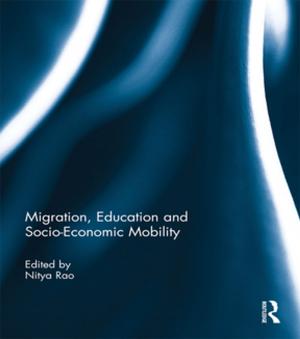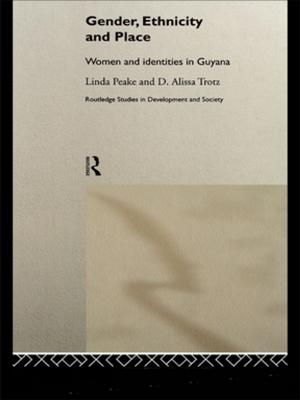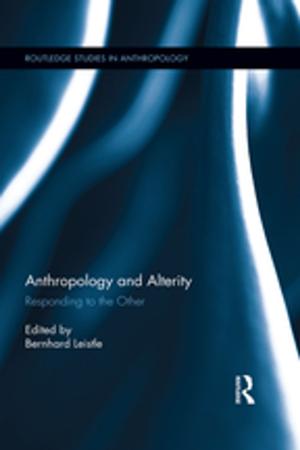A Sociology of Knowledge of European Integration
The Social Sciences in the Making of Europe
Nonfiction, Social & Cultural Studies, Political Science| Author: | ISBN: | 9781317339373 | |
| Publisher: | Taylor and Francis | Publication: | October 2, 2017 |
| Imprint: | Routledge | Language: | English |
| Author: | |
| ISBN: | 9781317339373 |
| Publisher: | Taylor and Francis |
| Publication: | October 2, 2017 |
| Imprint: | Routledge |
| Language: | English |
This book addresses the important but understudied question of how social scientific knowledge is entangled in the process of European integration. More specifically, it provides the first systematic introduction to a sociology of knowledge approach to European integration and demonstrates the value of such an approach through empirical illustrations.
Drawing on new research in the intersection of sociology of knowledge and political sociology, the book is the first to analyse the entanglement of social scientific knowledge and the development of the EU. The book provides the first systematic mapping of the relations between social scientific knowledge and particular aspects of European integration such as the Euro and monetary governance, constitution- and treaty-negotiation, education policy, enlargement and external relations. The book imports key ideas from the sociology of knowledge, sociology of science and political sociology to cast new light on the field of EU studies and its relation to the EU. The result is a fresh account of European integration, shaped – in often surprising ways – by relatively small groups of people and their particular ideas about economy, law, culture and politics.
This book was published as a special issue of the Journal of European Integration.
This book addresses the important but understudied question of how social scientific knowledge is entangled in the process of European integration. More specifically, it provides the first systematic introduction to a sociology of knowledge approach to European integration and demonstrates the value of such an approach through empirical illustrations.
Drawing on new research in the intersection of sociology of knowledge and political sociology, the book is the first to analyse the entanglement of social scientific knowledge and the development of the EU. The book provides the first systematic mapping of the relations between social scientific knowledge and particular aspects of European integration such as the Euro and monetary governance, constitution- and treaty-negotiation, education policy, enlargement and external relations. The book imports key ideas from the sociology of knowledge, sociology of science and political sociology to cast new light on the field of EU studies and its relation to the EU. The result is a fresh account of European integration, shaped – in often surprising ways – by relatively small groups of people and their particular ideas about economy, law, culture and politics.
This book was published as a special issue of the Journal of European Integration.















